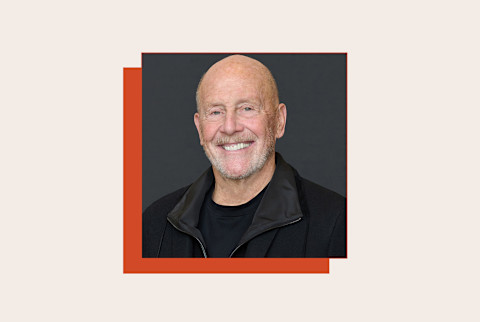xThe Secret To Thriving At Work & Home, According To Entrepreneur & CEO

When Lew Frankfort, author of Bag Man, was simultaneously navigating a major health crisis and leading Coach through explosive growth, he discovered something profound: true balance isn't about perfect equilibrium—it's about strategic prioritization and recovery.
The longtime CEO, who transformed Coach from a small leather-goods company into a 5 billion dollar global lifestyle brand, recently shared his hard-won wisdom on achieving sustainable high performance on the mindbodygreen podcast. His approach combines evidence-based health practices with practical leadership strategies that extend far beyond the boardroom into every aspect of life.
Frankfort's story is particularly compelling because it challenges the conventional narrative that you must sacrifice family for professional success. Growing up as the son of a New York City cop in the Bronx, he built an extraordinary career while remaining deeply connected to his role as husband, father, and grandfather—proving that it's possible to excel in multiple domains simultaneously.
What “balance” really looks like
Frankfort doesn’t romanticize the concept. “You can have balance over the long term,” he says, “but even a balanced individual will need to lean into work in an excessive way from time to time.” The real key is recognizing when that intensity is tipping toward unsustainable—and making a conscious effort to refuel your body and mind.
For him, that began with nonnegotiable movement. He committed to working out at 5:30 or 6 a.m., four to five days a week, before the day could get away from him. Just as important, he carved out specific windows for family time and treated them as sacred. “I worked really hard not to violate those periods,” he recalls. Those guardrails helped him weather the chaos of corporate life without losing sight of what grounded him.
Recovery was equally strategic. Frankfort embraced short “power naps” of 10 to 20 minutes during the week, and longer “renewal naps” on weekends, sometimes stretching up to two hours. Over time, these intentional pauses evolved into a meditation practice, which he now sees as essential for sustaining energy and presence.
Another tool he swears by is compartmentalization. Using what he calls a “parking lot” system, he jots down issues that don’t need immediate attention and assigns them to short-, medium-, or long-term follow-ups. “If you memorialize it, if you put it in writing, it’s much easier to let it go,” he explains. This method keeps him focused on what he can control, reduces rumination, and creates mental space for both leadership and family life.
Finding purpose in work & life
Frankfort’s career may have been defined by fashion, but the lessons he carries forward have little to do with handbags or runways. For him, the true markers of success are purpose and relationships. He believes that when people are connected to a deeper sense of “why” in their work, performance and fulfillment naturally follow.
That’s why he encourages younger professionals to be intentional about the environments they step into. Rather than chasing prestige or salary alone, he suggests looking for companies whose values align with your own, where collaboration is celebrated and growth is nurtured. “The best teams in the world work in cultures that are collaborative, that reinforce good values, and reward people for hard work and performance,” he says.
Equally important, he notes, is finding mentors, people who can offer guidance, perspective, and honest feedback along the way. In Frankfort’s own journey, trusted advisors helped him navigate difficult seasons and see blind spots he couldn’t identify on his own. Strong mentors, he explains, don’t just teach skills; they model character and help shape the kind of leader—and person—you become.
At its core, Frankfort’s philosophy is about remembering that work is never just about output or results. It’s about the relationships you build in the process and the values you bring into every interaction.
The takeaway
Frankfort’s journey underscores a powerful truth: high performance doesn’t have to come at the cost of your health, relationships, or sense of self. By prioritizing habits that refuel you and by leading with purpose and presence, you can sustain excellence across all areas of life.
As he puts it, only two things are truly essential: purpose and authentic relationships. Marry the two, and you’re far more likely to build a career—and a life—of true success.
